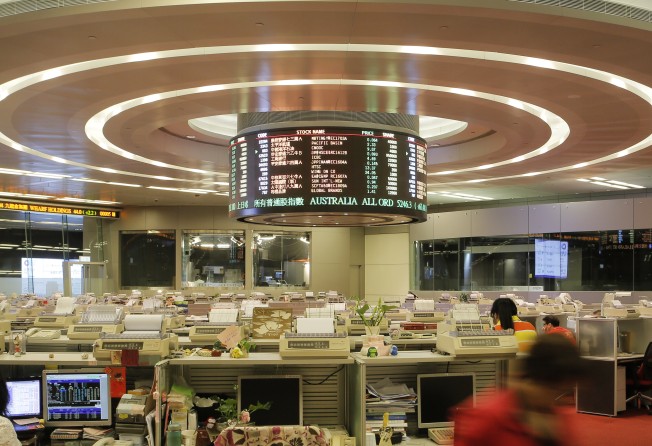
Hong Kong’s Exchange Fund swings to biggest quarterly loss in history
Surprise record deficit in third quarter comes after crash in stock markets

The Exchange Fund swung to a surprise loss of HK$63.8 billion in the third quarter, its biggest quarterly loss in history, Hong Kong Monetary Authority chief executive Norman Chan Tak-lam said yesterday.
The investment income loss came after a gain of HK$18.7 billion in the second quarter, Chan said.
The flood of red ink coincided with a stock market rout that hammered Hong Kong and mainland markets after they hit a seven-year peak in the second quarter.
For the first nine months of the year, the fund, which is used to defend the Hong Kong dollar and act as a piggy bank for budget surpluses, posted a net loss of HK$36.8 billion.
The Exchange Fund, which is managed by the HKMA and invested in stocks, bonds, property and cash, saw its equity investments lose HK$64.8 billion in the July-September period, while its foreign exchange-related investments made a loss of HK$10.8 billion.
Only its bond investments logged a gain - HK$11.8 billion.
Unlike some sovereign wealth funds such as Norway's pension fund, the world's largest, the Exchange Fund does not publicly detail the specific securities it holds.
Based on the poor returns in the past quarter, it seemed likely a large portion of the fund's portfolio account was in equities, said Brett McGonegal, the chief executive of financial services firm Reorient Group.
However, big investment funds were "not nimble enough to avoid losses" when the market turned, McGonegal said, and so "it is pretty tough to look at sovereign fund [returns] on a quarterly basis".
Chan said global markets had been volatile in the past three quarters, leading to the fund's poor performance.
He said the authority would make reasonable and prudent decisions in the medium and long term and expected better returns for the fund when market conditions improved.
The fund returned 1.4 per cent last year, according to an annual report.
In percentage terms, the fund fell 1.9 per cent in the past quarter, its second worst quarterly loss since 2001, having dropped 3.4 per cent in the third quarter in 2008, during the global financial crisis.
A stronger US dollar in the third quarter combined with a weaker yuan was also likely to have contributed to the fund's poor performance, analysts said, as it kept an undisclosed, yet significant amount of money in non-US dollar holdings.
The dent to returns would "definitely affect spending by the government", said Jasper Lo Cho-yan, a director of Tung Shing Futures, because the government dipped into the fund to support public programmes.